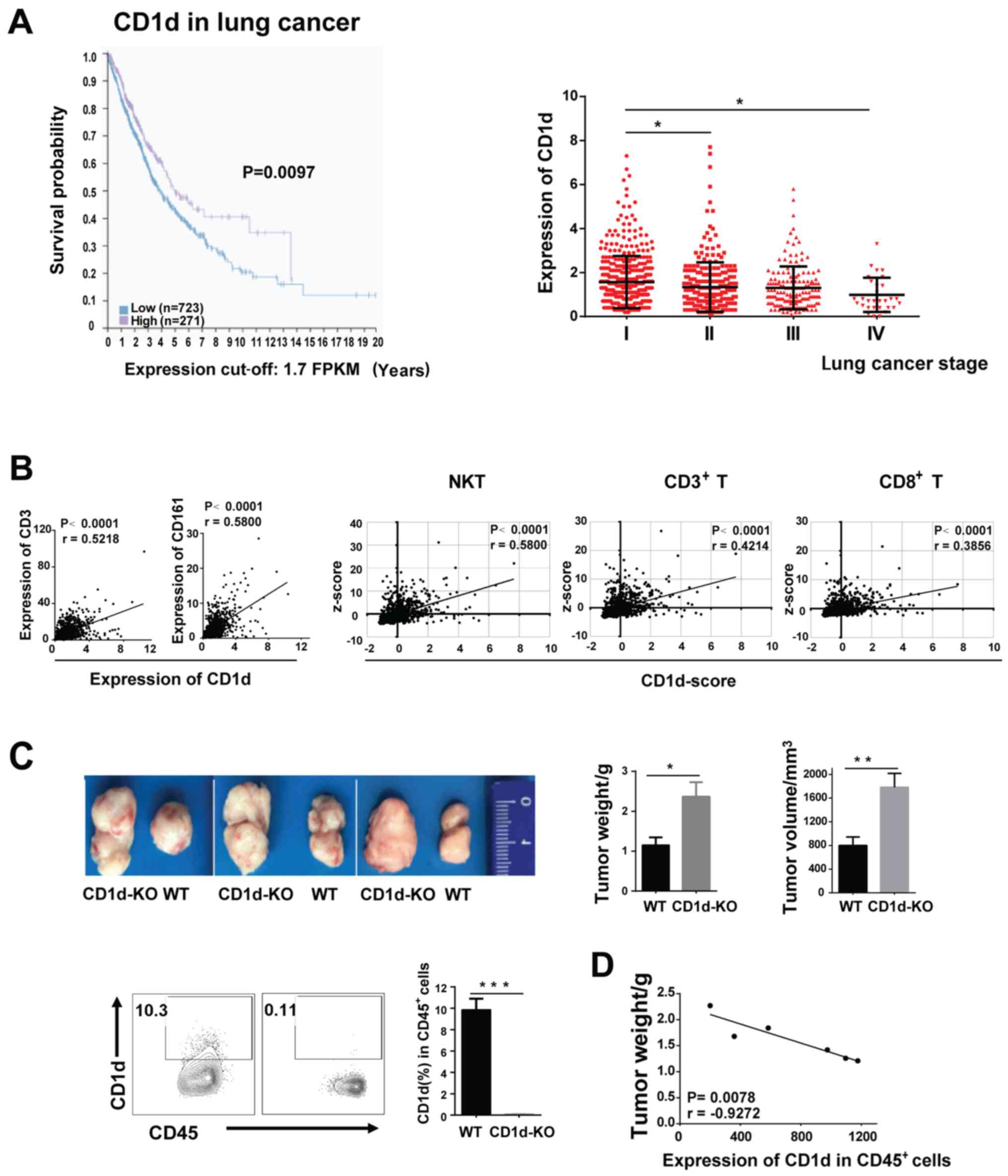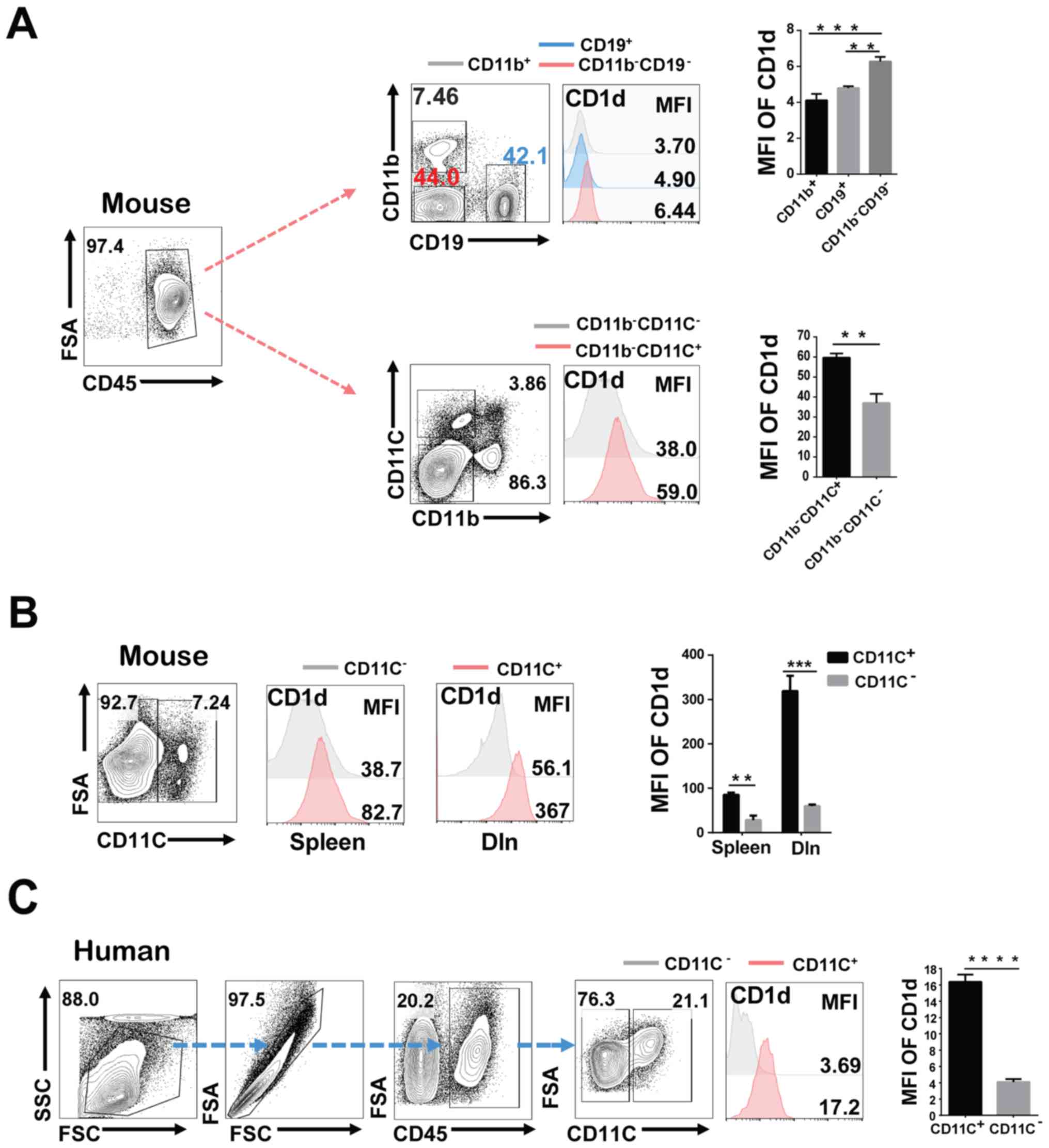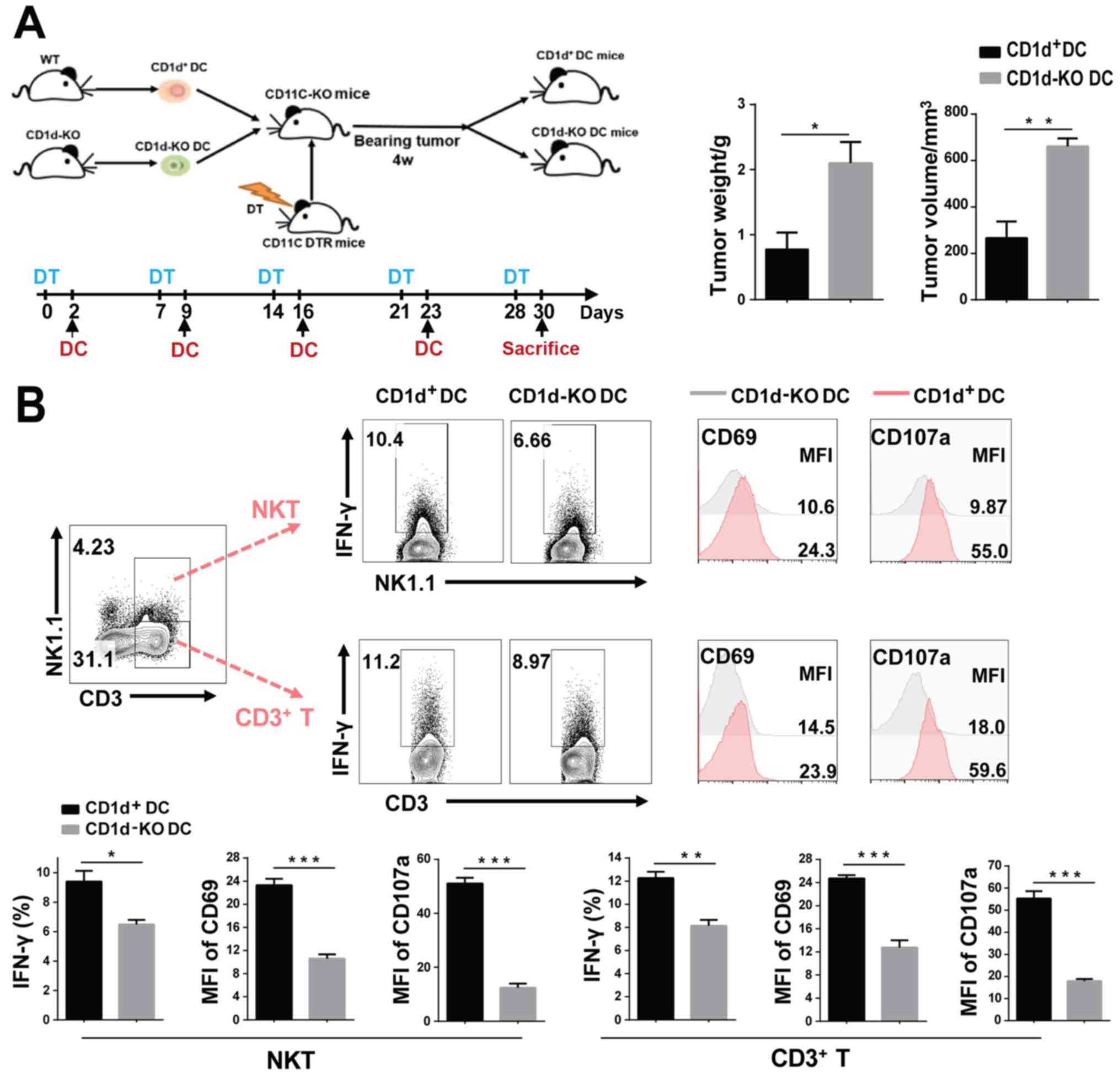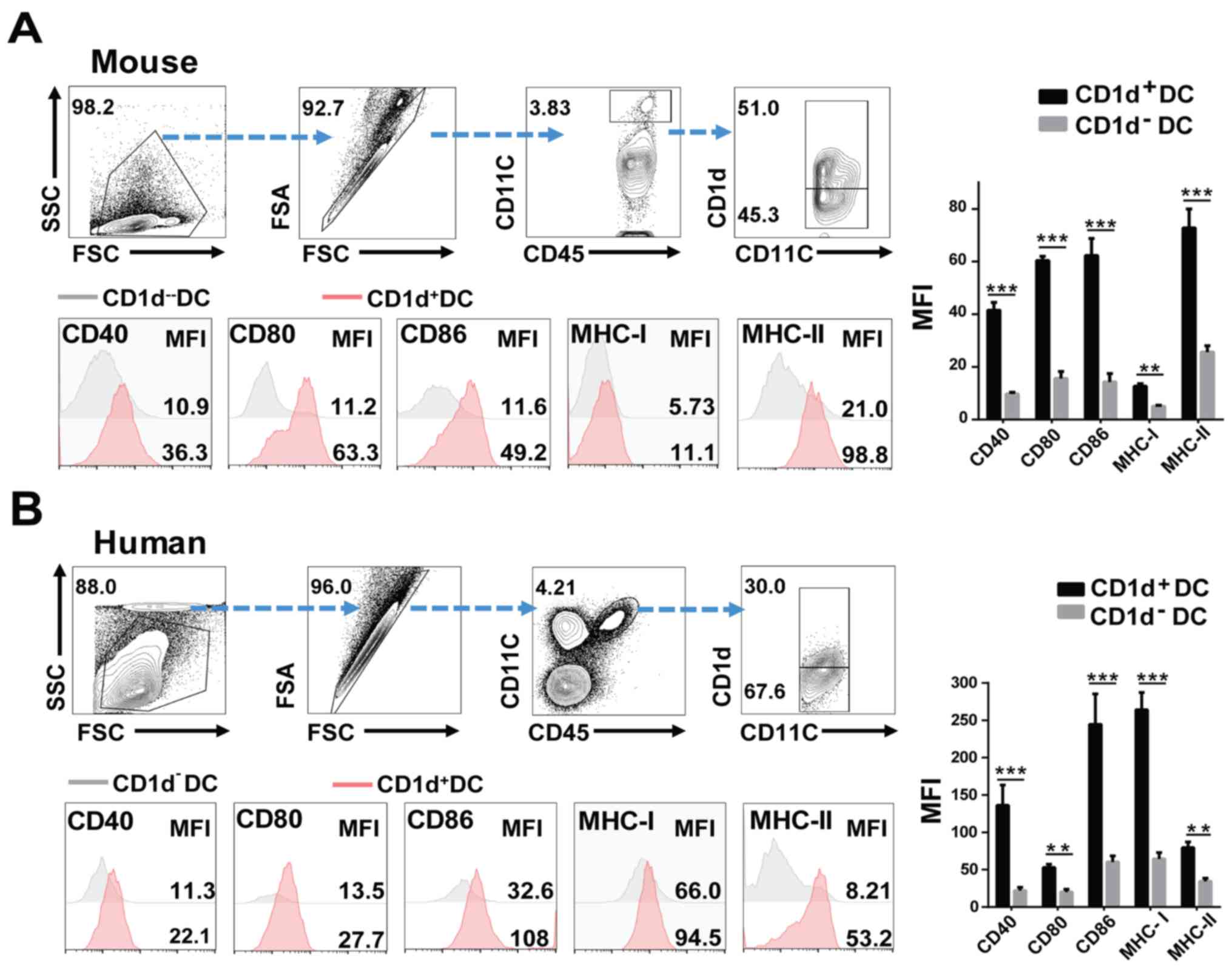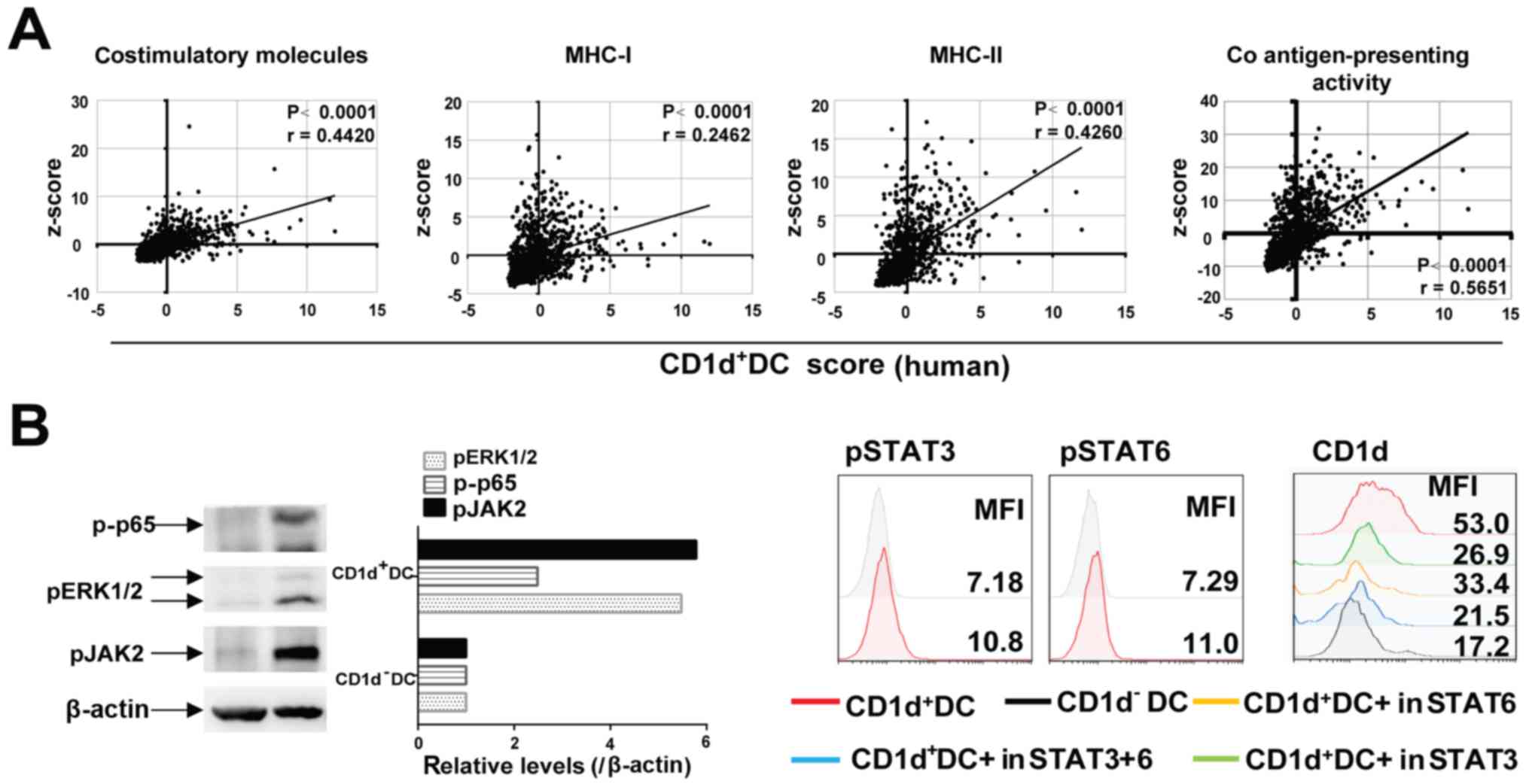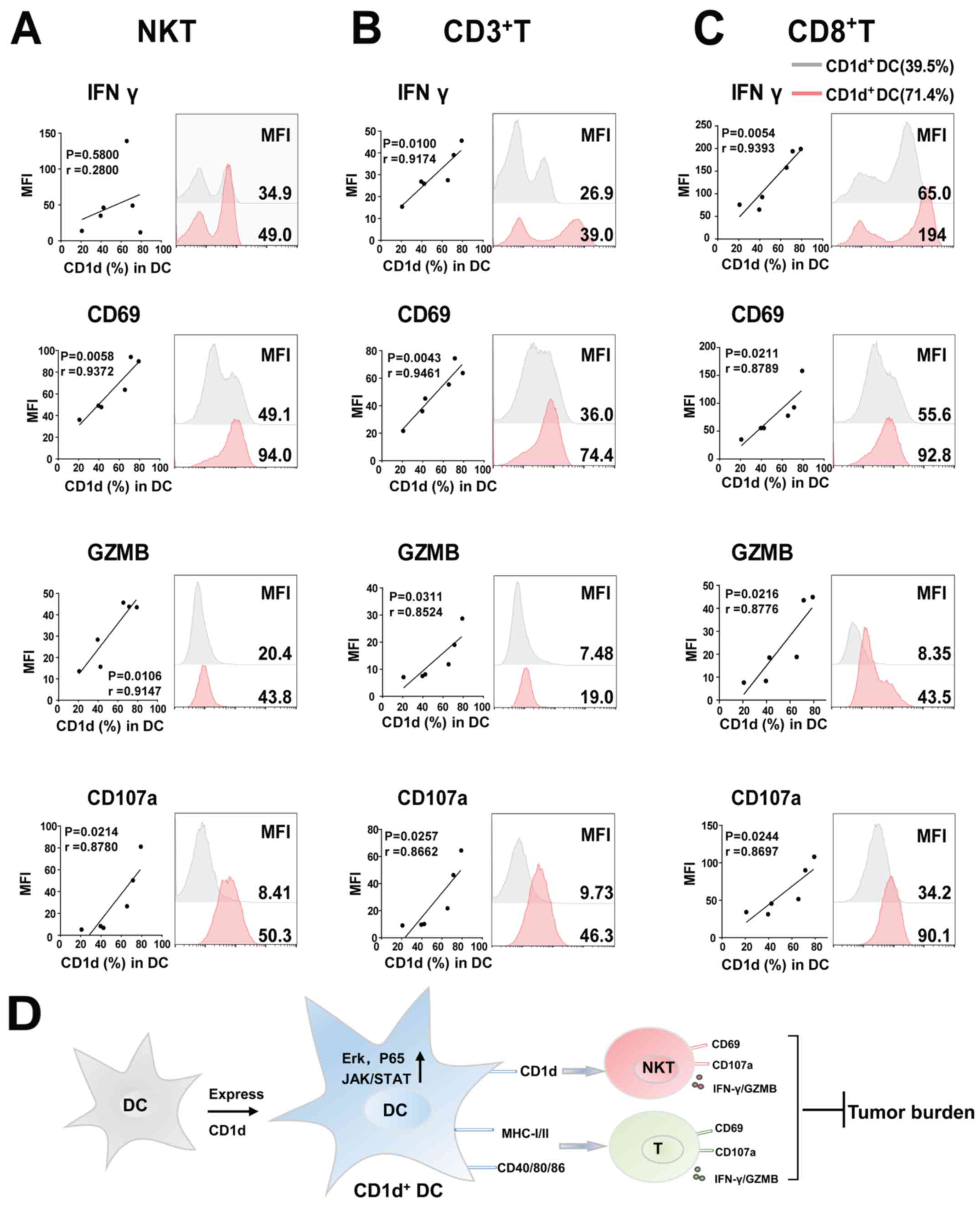|
1
|
Escors D: Tumour immunogenicity, antigen
presentation and immunological barriers in cancer immunotherapy.
New J Sci. 2014(pii): 7345152014.PubMed/NCBI
|
|
2
|
Bandola-Simon J and Roche PA: Dysfunction
of antigen processing and presentation by dendritic cells in
cancer. Mol Immunol. Apr 5–2018.(Epub ahead of print). pii:
S0161-5890(18)30104-4, doi: 10.1016/j.molimm.2018.03.025.
View Article : Google Scholar : PubMed/NCBI
|
|
3
|
Cordes LM, Gulley JL and Madan RA:
Perspectives on the clinical development of immunotherapy in
prostate cancer. Asian J Androl. 20:253–259. 2018. View Article : Google Scholar : PubMed/NCBI
|
|
4
|
Chen YL, Chang MC, Chiang YC, Lin HW, Sun
NY, Chen CA, Sun WZ and Cheng WF: Immuno-modulators enhance
antigen- specific immunity and anti-tumor effects of
mesothelin-specific chimeric DNA vaccine through promoting DC
maturation. Cancer Lett. 425:152–163. 2018. View Article : Google Scholar : PubMed/NCBI
|
|
5
|
de Charette M, Marabelle A and Houot R:
Turning tumour cells into antigen presenting cells: The next step
to improve cancer immunotherapy? Eur J Cancer. 68:134–147. 2016.
View Article : Google Scholar : PubMed/NCBI
|
|
6
|
Jung NC, Lee JH, Chung KH, Kwak YS and Lim
DS: Dendritic cell-based immunotherapy for solid tumors. Transl
Oncol. 11:686–690. 2018. View Article : Google Scholar : PubMed/NCBI
|
|
7
|
Canchis PW, Bhan AK, Landau SB, Yang L,
Balk SP and Blumberg RS: Tissue distribution of the non-polymorphic
major histocompatibility complex class I-like molecule, CD1d.
Immunology. 80:561–565. 1993.PubMed/NCBI
|
|
8
|
Barral DC and Brenner MB: CD1 antigen
presentation: How it works. Nat Rev Immunol. 7:929–941. 2007.
View Article : Google Scholar : PubMed/NCBI
|
|
9
|
Moody DB and Porcelli SA: Intracellular
pathways of CD1 antigen presentation. Nat Rev Immunol. 3:11–22.
2003. View
Article : Google Scholar : PubMed/NCBI
|
|
10
|
McEwen-Smith RM, Salio M and Cerundolo V:
CD1d-dependent endogenous and exogenous lipid antigen presentation.
Curr Opin Immunol. 34:116–125. 2015. View Article : Google Scholar : PubMed/NCBI
|
|
11
|
Brutkiewicz RR, Yunes-Medina L and Liu J:
Immune evasion of the CD1d/NKT cell axis. Curr Opin Immunol.
52:87–92. 2018. View Article : Google Scholar : PubMed/NCBI
|
|
12
|
Teo WY, Elghetany MT, Shen J, Man TK, Li
X, Chintagumpala M, Su JM, Dauser R, Whitehead W, Adesina AM, et
al: Therapeutic implications of CD1d expression and
tumor-infiltrating macrophages in pediatric medulloblastomas. J
Neurooncol. 120:293–301. 2014. View Article : Google Scholar : PubMed/NCBI
|
|
13
|
Huang E, Liu R, Lu Z, Liu J, Liu X, Zhang
D and Chu Y: NKT cells mediate the recruitment of neutrophils by
stimulating epithelial chemokine secretion during colitis. Biochem
Biophys Res Commun. 474:252–258. 2016. View Article : Google Scholar : PubMed/NCBI
|
|
14
|
Webb TJ, Carey GB, East JE, Sun W, Bollino
DR, Kimball AS and Brutkiewicz RR: Alterations in cellular
metabolism modulate CD1d-mediated NKT-cell responses. Pathog Dis.
74:742016. View Article : Google Scholar
|
|
15
|
Chung BK, Priatel JJ and Tan R: CD1d
Expression and invariant NKT cell responses in herpesvirus
infections. Front Immunol. 6:3122015. View Article : Google Scholar : PubMed/NCBI
|
|
16
|
Exley M, Garcia J, Wilson SB, Spada F,
Gerdes D, Tahir SM, Patton KT, Blumberg RS, Porcelli S, Chott A, et
al: CD1d structure and regulation on human thymocytes, peripheral
blood T cells, B cells and monocytes. Immunology. 100:37–47. 2000.
View Article : Google Scholar : PubMed/NCBI
|
|
17
|
Brigl M and Brenner MB: CD1: Antigen
presentation and T cell function. Annu Rev Immunol. 22:817–890.
2004. View Article : Google Scholar : PubMed/NCBI
|
|
18
|
Männ L, Kochupurakkal N, Martin C, Verjans
E, Klingberg A, Sody S, Kraus A, Dalimot J, Bergmüller E, Jung S,
et al: CD11c.DTR mice develop a fatal fulminant myocarditis after
local or systemic treatment with diphtheria toxin. Eur J Immunol.
46:2028–2042. 2016. View Article : Google Scholar : PubMed/NCBI
|
|
19
|
Wang SS, Liu W, Ly D, Xu H, Qu L and Zhang
L: Tumor-infiltrating B cells: Their role and application in
anti-tumor immunity in lung cancer. Cell Mol Immunol. 2018.
|
|
20
|
Zhou J, Lai W, Yang W, Pan J, Shen H, Cai
Y, Yang C, Ma N, Zhang Y, Zhang R, et al: BLT1 in dendritic cells
promotes Th1/Th17 differentiation and its deficiency ameliorates
TNBS-induced colitis. Cell Mol Immunol. 15:1047–1056. 2018.
View Article : Google Scholar : PubMed/NCBI
|
|
21
|
Zheng Y, Xiong S, Jiang P, Liu R, Liu X,
Qian J, Zheng X and Chu Y: Glucocorticoids inhibit
lipopolysaccharide-mediated inflammatory response by downregulating
microRNA-155: A novel anti-inflammation mechanism. Free Radic Biol
Med. 52:1307–1317. 2012. View Article : Google Scholar : PubMed/NCBI
|
|
22
|
Perwitasari O, Cho H, Diamond MS and Gale
M Jr: Inhibitor of κB kinase epsilon (IKK(epsilon)), STAT1, and
IFIT2 proteins define novel innate immune effector pathway against
West Nile virus infection. J Biol Chem. 286:44412–44423. 2011.
View Article : Google Scholar : PubMed/NCBI
|
|
23
|
Gentilini MV, Pérez ME, Fernández PM,
Fainboim L and Arana E: The tumor antigen N-glycolyl-GM3 is
a human CD1d ligand capable of mediating B cell and natural killer
T cell interaction. Cancer Immunol Immunother. 65:551–562. 2016.
View Article : Google Scholar : PubMed/NCBI
|
|
24
|
Ferguson K, Yadav A, Morey S, Abdullah J,
Hrysenko G, Eng JY, Sajjad M, Koury S and Rittenhouse-Olson K:
Preclinical studies with JAA-F11 anti-Thomsen-Friedenreich
monoclonal antibody for human breast cancer. Future Oncol.
10:385–399. 2014. View Article : Google Scholar : PubMed/NCBI
|
|
25
|
Reis e Sousa C: Dendritic cells in a
mature age. Nat Rev Immunol. 6:476–483. 2006. View Article : Google Scholar : PubMed/NCBI
|
|
26
|
Veglia F and Gabrilovich DI: Dendritic
cells in cancer: The role revisited. Curr Opin Immunol. 45:43–51.
2017. View Article : Google Scholar : PubMed/NCBI
|
|
27
|
Liu Q, Zhang C, Sun A, Zheng Y, Wang L and
Cao X: Tumor- educated CD11bhighIalow
regulatory dendritic cells suppress T cell response through
arginase I. J Immunol. 182:6207–6216. 2009. View Article : Google Scholar : PubMed/NCBI
|
|
28
|
Chong TW, Goh FY, Sim MY, Huang HH, Thike
AA, Lim WK, Teh BT and Tan PH: CD1d expression in renal cell
carcinoma is associated with higher relapse rates, poorer
cancer-specific and overall survival. J Clin Pathol. 68:200–205.
2015. View Article : Google Scholar : PubMed/NCBI
|
|
29
|
Sáez de Guinoa J, Jimeno R, Gaya M,
Kipling D, Garzón MJ, Dunn-Walters D, Ubeda C and Barral P:
CD1d-mediated lipid presentation by CD11c+ cells
regulates intestinal homeostasis. EMBO J. 37:372018. View Article : Google Scholar
|
|
30
|
Hix LM, Shi YH, Brutkiewicz RR, Stein PL,
Wang CR and Zhang M: CD1d-expressing breast cancer cells modulate
NKT cell-mediated antitumor immunity in a murine model of breast
cancer metastasis. PLoS One. 6:e207022011. View Article : Google Scholar : PubMed/NCBI
|
|
31
|
Liu D, Song L, Brawley VS, Robison N, Wei
J, Gao X, Tian G, Margol A, Ahmed N, Asgharzadeh S, et al:
Medulloblastoma expresses CD1d and can be targeted for
immunotherapy with NKT cells. Clin Immunol. 149:55–64. 2013.
View Article : Google Scholar : PubMed/NCBI
|
|
32
|
Oleinika K, Rosser EC, Matei DE, Nistala
K, Bosma A, Drozdov I and Mauri C: CD1d-dependent immune
suppression mediated by regulatory B cells through modulations of
iNKT cells. Nat Commun. 9:6842018. View Article : Google Scholar : PubMed/NCBI
|
|
33
|
Liechtenstein T, Dufait I, Lanna A,
Breckpot K and Escors D: Modulating co-stimulation during antigen
presentation to enhance cancer immunotherapy. Immunol Endocr Metab
Agents Med Chem. 12:224–235. 2012. View Article : Google Scholar : PubMed/NCBI
|
|
34
|
Karwacz K, Bricogne C, MacDonald D, Arce
F, Bennett CL, Collins M and Escors D: PD-L1 co-stimulation
contributes to ligand-induced T cell receptor down-modulation on
CD8+ T cells. EMBO Mol Med. 3:581–592. 2011. View Article : Google Scholar : PubMed/NCBI
|
|
35
|
Liechtenstein T, Dufait I, Bricogne C,
Lanna A, Pen J, Breckpot K and Escors D: PD-L1/PD-1 co-stimulation,
a brake for T cell activation and a T cell differentiation signal.
J Clin Cell Immunol S12:. (pii): 0062012.
|
|
36
|
Merad M, Sathe P, Helft J, Miller J and
Mortha A: The dendritic cell lineage: Ontogeny and function of
dendritic cells and their subsets in the steady state and the
inflamed setting. Annu Rev Immunol. 31:563–604. 2013. View Article : Google Scholar : PubMed/NCBI
|















